As VisitScotland celebrates the art of storytelling through Scotland’s Year of Stories 2022, Michael Alexander asks Tayside and Fife-connected wordsmiths what storytelling means to them.
From ghosts, kelpies and witch trials to unexplained monsters and deep-rooted beliefs, Scotland’s folklore is woven from a rich tapestry of culture and history.
But whether rooted in fact or fiction, what makes a good story and why do some prevail more than others?
As VisitScotland marks Scotland’s Year of Stories 2022 – a celebration of stories inspired by, written, or created in Scotland – The Courier asked a cross-section of people who make their living from words what stories mean to them.
From internationally-renowned best-selling authors and a storytelling director, to a Fife English teacher and a Dundee-born investigative journalist, all agree that stories are a vital part of Scotland’s culture and that every community has a different tale to tell.
Bell Baxter High School English teacher
Louise Harvie is an English teacher at Bell Baxter High School in Cupar.
The best part of her job is that she tells stories for a living and encourages pupils to share theirs.
When the 47-year-old mother of two reflects on how she fell in love with books and stories, she thinks back to her early life growing up in Kirkcaldy.
When she was little, it took her a long time to learn to walk.
Perhaps as a result of problems with movement, she spoke from a very early age, and was turning the pages of a book and ‘telling the story’ of the pictures when she was under a year old.
However, her imagination was also fuelled by her grandparents with whom she spent a huge amount of time.
“My grandfather was a Polish paratrooper, who settled in Scotland after World War Two,” she explains.
“I grew up listening to him and his friends telling the stories of what had happened to them during the war, the lives they had left behind and the lives they had forged in Scotland.
“Their stories and the story of my dad – an Irish immigrant – led to a fascination with tales of other lands and other cultures, and a love of stories of triumph over adversity.”
Louise recalls that when she was growing up in the 1970s and 1980s, children’s literature seemed to fall into three categories: stories of children who were at boarding school; stories of wartime evacuees or apocalyptic post-nuclear tales.
Whilst she read and enjoyed all of these novels, it wasn’t until she was reading in her teens that she began to see parallels between her life and the lives of the characters.
It was in her teens, too, through the lyrics of her favourite songs, that she discovered stories told through poetry.
“As human beings, we have evolved to learn about the world around us through being told stories,” she says.
“Nowadays, we do this through reading books, listening to songs, watching a film, or picking up a snippet about someone else’s life on Facebook.
“Stories are what make people interesting and interested: we seek out stories of people who are like us, for reassurance and to feel a connection with others; we seek out tales of adventures which are very different from our own experiences, to live vicariously through others.”
Award-winning novelist and screenwriter
Stories rooted in the Second World War have also influenced award-winning American novelist and screenwriter Don Snyder, who recently set up the Caddie School for Soldiers in Fife.
For him, the only stories that matter are the “ones that take us away from the life we are living day to day into another world”.
There, he says, we catch an “unexpected glimpse of ourselves in the characters who inhabit that world, and who reveal to us a deeper understanding of life and love and loss and the mysteries that surround us”.
“It was my grandmother who took me in when my mum died a few days after I was born who first told me stories that were always about these mysteries,” he says.
“I remember her telling me that atoms in our bodies can be traced back to the remnants of exploded stars.
“Her story that has stayed with me for more than 60 years, and that I have returned to in every book and screenplay I have written, she told me one night in 1953, during a thunderstorm, when I sat on her lap while she was peeling apples to bake a pie.
“It was a story about the boys in our town who had left for World War Two.
“Some who died in far off places. Others who returned to father a new generation of babies.
“She believed that each time one of those babies was born, the soul that inhabited it came from one of the dead soldiers, so that those boys who had died so far from home got to live again in the town where they had grown up, the town they had left for the war.
“And all their lives, these children of the next generation inhabited by the souls of the dead soldiers would run through the quiet tree-lined streets playing, and later would park their cars outside the cinema, with the strange sense of familiarity, the sense that they had been here before and that all of this was happening to them once again.
“When someone you love and trust tells you a story like that when you are very young, they are handing you a passport for a journey you never stop preparing for.”
Dundee-born author
Dundee-born romance author Alinka Zyrmont laughs that there’s a simple reason why she became a writer – because she’s terrible at maths!
As a pupil at Dundee’s Blackness School in the 1940s/50s where her mum was a teacher, she used to daydream a lot.
Her granny Jessie Lindsay called her “wee chatterbox.”
She was always an avid reader in the days before her family had television.
It was her love of travel, however, that inspired her to start writing about adventures.
“I feel stories have always been important throughout human existence starting with the Bible,” says Alinka, who is now based in Texas, USA.
“Agatha Christie and James Patterson, are also best sellers. I wish I could say the same! I can wallpaper my office with rejection slips, some polite, most indifferent.
“But I write because I have to.
It is not only a form of catharsis because every writer always puts a bit of self into a book, but as an author I create an identity: this is my work, this is who I am!
“Readers select a book to escape into another dimension.
“In times of strife they will find a book with a narrative of survival, to renew their faith in humanity.
They want to identify with the protagonist’s bravery and determination and hope in a world that seems evil.”
‘Escapism’ of Courier book reviewer
For Courier book reviewer Hollie Bruce, stories have always been a form of escapism.
She loves the magic of being transported to another time and place and having her eyes opened to another world, new characters and other perspectives.
Hollie says the first story that ignited her love of literature was ‘Under the Hawthorn Tree’ by Marita Conlon McKenna.
It was the first book that ever made her cry and she will always credit Marita and her “brilliant writing” for inspiring her to study English literature at university.
Whether it is a fantasy set in another world, or a gripping crime drama, however, what unites stories is they allow us to view the world through “another lens”.
“Stories have always been important,” she adds.
“They pass from one age to the next, providing us with a glimpse into times gone by, preserving traditions and inspiring the next generation.
“I still have a copy of my granny’s ‘Aesop’s Fables’, given to her as a child, a collection of tales which are still as captivating today as they were all those years ago.
“Stories connect us in a way that is truly unique and special.”
Scottish Storytelling Centre manager
Stories come in many forms. But for Daniel Abercrombie, who is programme and events manager at the Scottish Storytelling Centre in Edinburgh and the associate director of the Scottish International Storytelling Festival, it’s live storytelling that’s particularly special.
The distinct and enjoyable thing about that age-old means of delivery, he says, is that a story is never told to an audience – it is shared with them.
The audience can then take that story and share it with other people, possibly putting their own take on it, or positioning it within their own culture or experiences.
“It is a lovely thing to encounter and a reminder of our universal connection through stories,” he says.
“To me, this is the root of what makes storytelling a special art-form and why it is important within any community.
“There is a two-way relationship between the audience and the performer, with no barrier between the two.
“The audience are central to the experience and a good storyteller will adapt and respond to the people they see in front of them, in a shared experience. And so the story goes on…”
Daniel says that live oral storytelling is perhaps a unique experience in the modern world, where it relies upon all participants to open themselves up to being part of the experience.
This, he says, is why stories are vital in the modern world.
“There is an element of getting back to basics within storytelling, where people can understand each other and connect with each other,” he adds.
“Maybe this is the main thing we have learnt from the past two years, that humans need connection, we need to engage with each other, listen to each other, respect each other and share our stories and experiences in an open and welcoming environment.”
St Andrews graduate: ‘Personal & profound’
Jennifer Andreacchi recently started as publicity and marketing officer at Edinburgh-based publishers Birlinn Ltd.
She completed an English literature postgraduate MLitt in Women, Writing and Gender at the University of St Andrews in September 2021.
Growing up in the USA, she was the kind of child who usually preferred to be curled up with a book than at a mall or cinema on a Friday night.
As a 12-year-old, she was captivated by the Lord of the Rings trilogy.
She felt like she was discovering a thirst for adventure that has never really left her.
More than that, however, she credits Tolkien’s powerful story about leaving home and finding yourself as the inspiration for her to move abroad and make a life in Scotland.
“From an engaging plot to interesting, relatable characters, there are some obvious elements that must come together in a good story, she says.
“What people are looking for when they read, however, is often much more personal and profound.
“We are searching for something that strikes a chord in us, something signifying belonging and recognition.
“Good stories are often thought of as worlds to escape into, but I think they are more like mirrors, reflecting back the most meaningful parts of life and ourselves.
“In cutting out monotony and distracting us from our daily stressors, good stories show us that we are connected by authentic universal experiences such as love, adventure, and loss.
“Good storytelling is a powerful thing, with the ability to transcend time and space, bringing into focus that which really matters.”
It’s known that oral storytelling vastly predates written language, meaning that stories have always played a vital role in the survival of humanity.
Fables with lifesaving messages, telling of how to harvest crops or avoid disease, kept our early human ancestors alive.
This tradition has shifted into more of a cultural practice, a means of creative expression.
Jennifer believes that the lifesaving and the cultural go together, and that storytelling as a means of preserving a peoplehood is still at work today.
Scotland in particular has a vibrant storytelling tradition that has survived throughout the ages.
Top-selling Scottish crime author
As one of Scotland’s biggest-selling crime writers, Denzil Meyrick, from Campbeltown, knows his way around a good story.
The former police officer has a new book coming out in June, The Death of Remembrance, which is the 10th novel in the bestselling DCI Daley series.
Growing up, he was inspired by his granny reading him Robert Louis Stevenson’s Treasure Island.
Comics were also an important part of life back then. Not least Dundee’s DC Thomson stable; the likes of the Beano, Dandy and Victor were some of his favourites, as were the Commando books series.
For him, the best stories are those that “immerse the reader utterly”.
“You know the feeling – pick up a book at one o’clock, and before you know it three hours have flown by,” he says.
“I always aim to entertain with a story. It’s that mix of plot, characterisation and setting; just add the full gamut of human emotions and stir.”
As any journalist will tell you, however, sometimes the best stories involve making public facts that others don’t want to be told.
Dundee-born investigative journalist
Dundee-born investigative journalist and former RAF Public Relations Officer for Scotland Michael Mulford says this mantra has got him into “many precarious situations” in nearly 60 years in journalism and television.
However, it is the good stories with happy outcomes he remembers the most.
“I was privileged to be principal spokesperson for military search and rescue operations based at RAF Kinloss,” he says.
“I still have a warm glow when I think how a Nimrod from the base spotted a fisherman 200 miles out in the Atlantic after a large fishing vessel sank.
“He had been in the water in winter for more hours than his life jacket could have helped him.
“The Nimrod crew battled high winds, positioned their four- jet engined aircraft perfectly, jettisoned a life raft attached to a long rope, and watched as the man pulled himself on board the life raft.
“He was saved after 12 hours. Someone was looking after him that day. I later found out his middle name was Jesus!”
VisitScotland: Stories to inspire & attract
Marie Christie, head of events industry development at VisitScotland, says Scotland has inspired stories and storytellers right across the world, for decades.
The Year of Stories 2022 offers a unique opportunity for the country’s valuable tourism and events industry to come together and share those stories to inspire and attract visitors.
“The love of stories is hardwired into us all,” she says.
“It is one of the strongest ways we connect with one another and share our experiences.
“Great stories, well told, can evoke unforgettable feelings, thoughts and images in our minds and bring contemporary and traditional cultures to life.
“Our research suggests that visitors want to have authentic experiences and there is no better way to really understand a community or culture than hear its stories.”
VisitScotland’s Year of Stories events programme is being added to all the time.
Events taking place in Tayside and Fife include Community Campfires, May 23-27, at Lochgelly Centre; So You Think You Know Your History? June 9-15, St Andrews Heritage Museum; Angus Year of Stories Festival , July 1-31, Angus; Dundee Summer Bash Streets Festival, July 14-24, Dundee; Perth & Kinross Year of Stories, running in Perthshire until October; and Discovery Film Festival, Dundee, on October 23.
For a full list go to visitscotland.com/year-of-stories
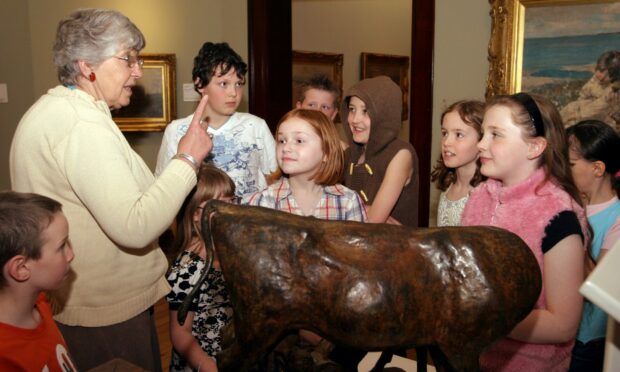
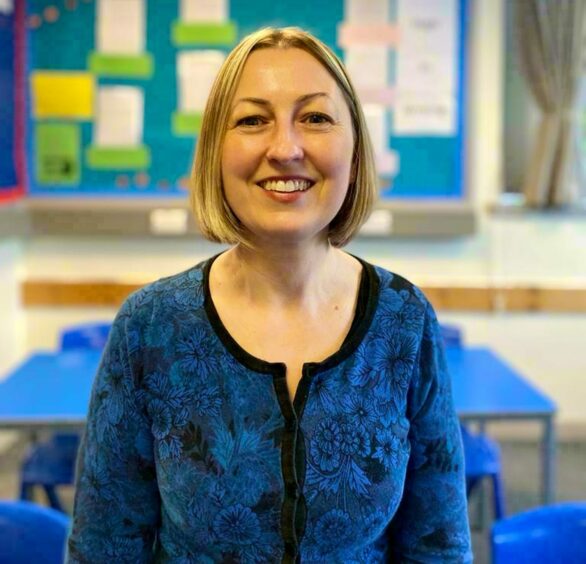
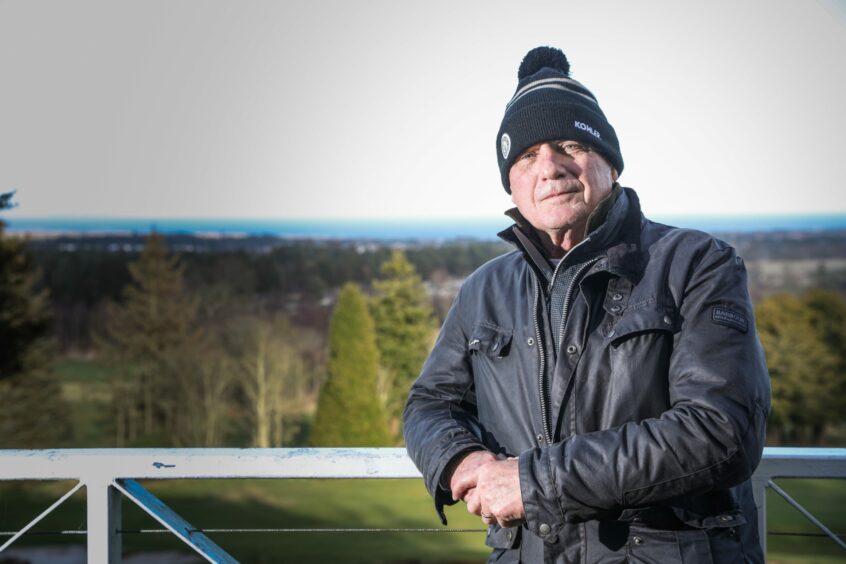
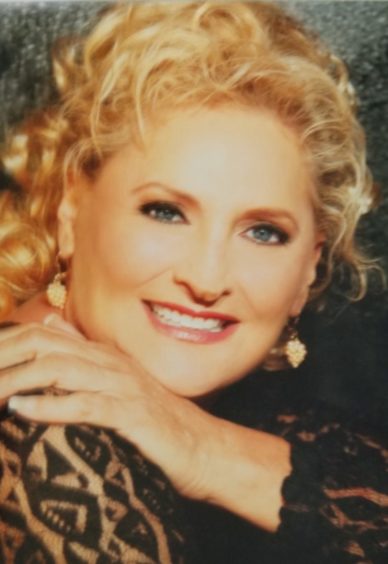
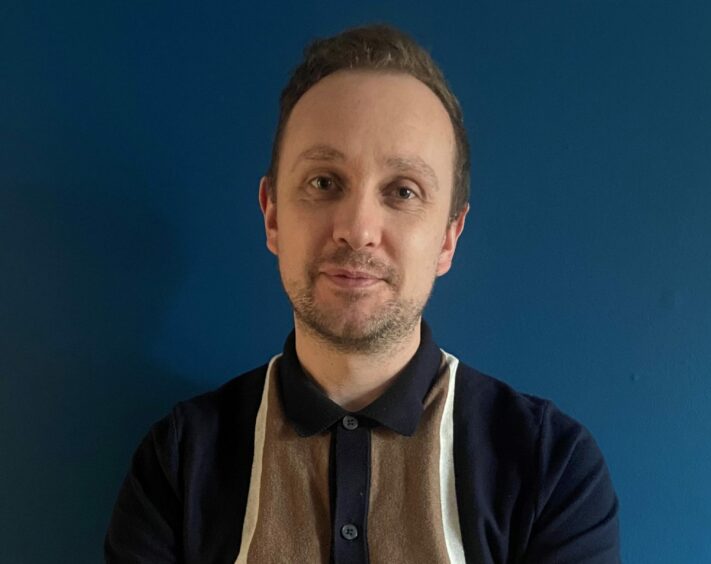
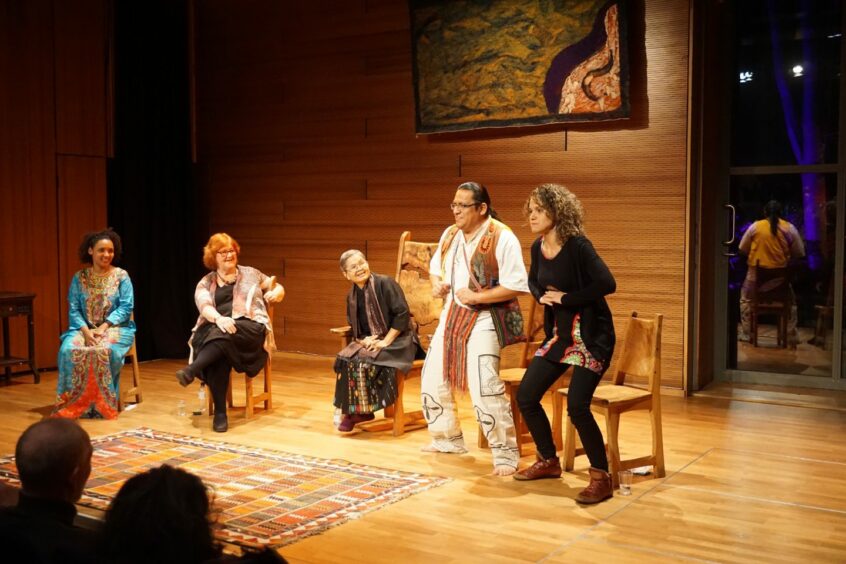
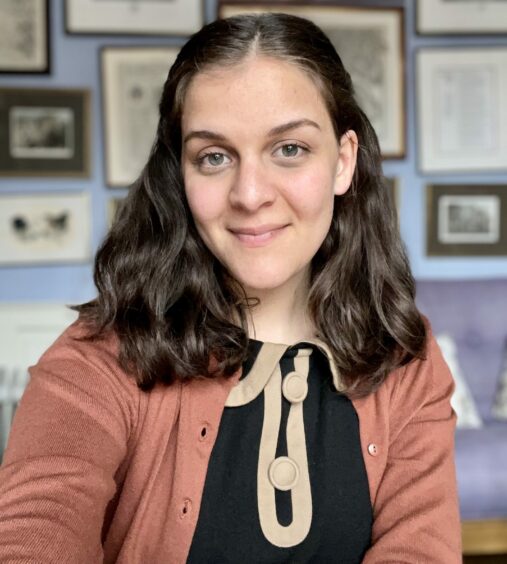


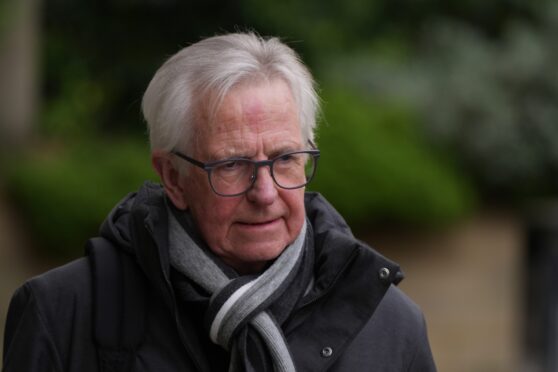









Conversation